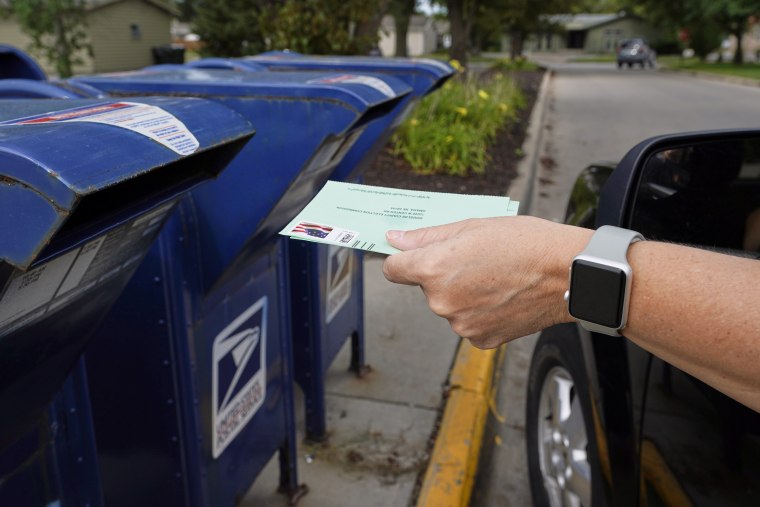Chuck Park has been busy fielding calls from Korean- and Mandarin-speaking eligible voters at a nonprofit in the New York City borough of Queens.
Callers are trying to understand how to register to vote and apply for absentee ballots, typically available in New York to those who are temporarily ill or out of the county on Election Day. MinKwon Center for Community Action, where Park works as a civic participation manager, is trying to help.

With the U.S. still in the grips of a deadly pandemic, voting by mail has emerged as a way to ensure that all citizens can participate safely in the 2020 election.
While most states allow voters to mail in ballots because of COVID-19, a little more than a handful still do not, according to an NBC News analysis.
Scarred by a virus that has claimed more than 170,000 lives nationwide, Asian American voters with underlying medical conditions or in communities hard hit by COVID-19 may think twice about voting in person, voting rights advocates say.
And without a mail-in option allowing COVID-19 as a reason, that could affect turnout at polling sites for an electorate that accounts for nearly 5 percent of all eligible voters, among them immigrants whose first language is not English.
“It is a shame that people may be forced to make that choice — do I prioritize my health or do I prioritize exercising my right to vote?” said Terry Ao Minnis, senior director of census and voting programs at Asian Americans Advancing Justice, a nonprofit.
New York, which has the second-largest number of Asian American eligible voters in the country, is reportedly expected to soon permit COVID-19 as a reason to vote by mail.
If and when that happens, Park said they’ll contact Korean- and Chinese-language ethnic media and conduct phone banks to explain the news to Asian American voters.
Still, the ins-and-outs of mail-in voting can be confusing, Park said.
“You have to fill out the absentee application, then you have to mail it back, then you have to wait for the absentee ballot to arrive, and you have to complete that in a very particular way,” Park said.
“Even for someone who’s educated and native English speaking, it’s not the easiest process,” he added.
Park said staff members have coached community members with limited English proficiency on how to complete voter paperwork, which can get tricky when doing it over the phone with older callers.
Mail-in ballots, however, can be less stressful than showing up to polling stations for voters not fluent in English, Minnis said.
“You have a little bit more time to do it at the pace that you're comfortable with,” she said. “Additionally, you can also get assistance with maybe translation or language help from friends and family without having to coordinate schedules.”
Asian Americans Advancing Justice is working on producing materials in languages other than English to allow voters to understand their voting options, their rights and how to exercise them, according to Minnis.
Rules vary widely from state to state, with everything from deadlines to register to whether photo ID is required to vote, potentially making the process confusing for limited English proficient voters.
The mail-in option, in particular, has become a political hot potato amid concerns that the U.S. Postal Service, facing a grim financial outlook, won’t be able to deliver ballots on time for them to count.
To avoid any impact on the election, Postmaster General Louis DeJoy said Tuesday that USPS will suspend any policy or operational changes until after the November presidential election.
President Donald Trump has expressed numerous times without evidence that mail-in voting will lead to voter fraud.
Minnis said that while her organization supports expanding voting by mail, it shouldn’t be the only option.
Casting a ballot in person, whether for early voting or on Election Day, could help limited English proficient voters by giving them access to interpreters trained in voting laws and procedures, in locales covered by the section of the Voting Rights Act that mandates it.
“It's really working to try to make sure that in-person options are done in a safe and responsible way,” Minnis said. “First and foremost, that should be what people are concerned about — making sure that people are able to exercise their fundamental right and to do so in a healthy and safe way.”
